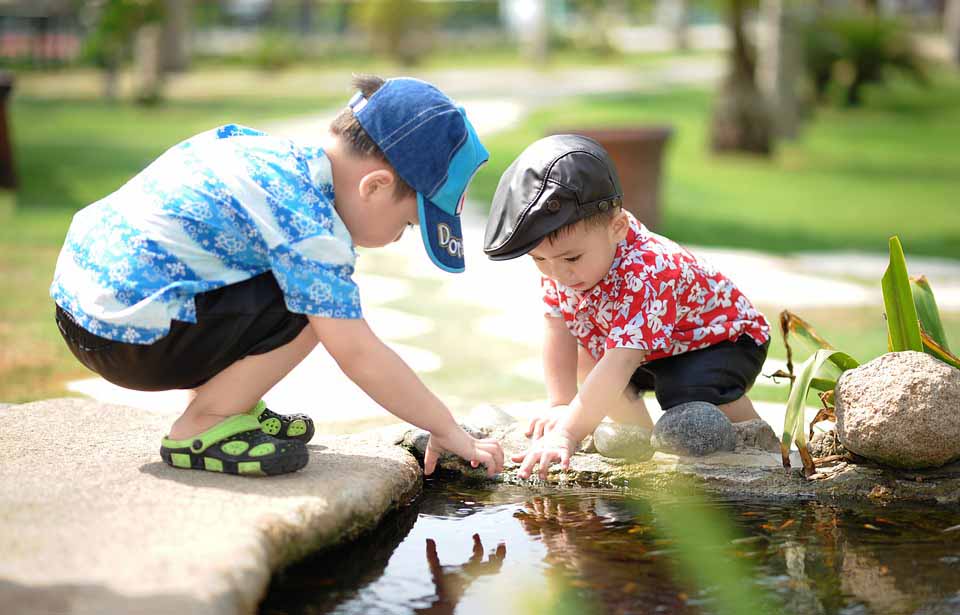Lifestyle skills go hand in hand with development, and will help your child succeed later in life. Discover the main life skills your kid should know and methods to incorporate them into your day to day routine.
What Are the Most crucial Life Skills for Youngsters to discover?
Focus and Self-Control
Perspective-Taking
Communication
Making Contacts
Critical Thinking
Taking on Challenges
Self-Directed, Engaged Understanding
What Are Life Expertise?
Teachers sometimes describe these skills as understanding how to learn skills, which can be developed through intentional day to day activities.
Below, we explore the Essential skills for the childs success and provide some simple methods to nurture them.
Existence Skill Activities to include into Your Childs EVERYDAY ACTIVITIES
1. Focus and Self-Control
Children thrive on schedules, habits, and workouts, which not merely develop a feeling of security, but also help children learn self-control and focus. Consult with your child as to what to expect each day. Organize your home so your kid knows where to put shoes, coats, and personal belongings. Most of us stay in a noisy, distraction-filled world, so quiet activities like reading a publication, enjoying sensory activities, or completing a puzzle collectively can help your child slower down and increase emphasis.
2. Perspective-Taking
Thinking about anothers perspective doesnt come naturally to most children, but it might be developed. Discuss characters feelings and motivations in the books you read, at the. g., I wonder why the cat and the pig wouldnt help the little red hen. Make observations about how exactly others are feeling, e. h., Alex was actually sad that he didnt get a turn. I wonder what we can do to make him feel better.
3. Communication
Youngsters need high-touch personal relationships every day to build healthy social-emotional skills, including the ability to understand and communicate with others. While the pace at which they develop these skills may vary, children need to learn how to read social cues and listen carefully. They must consider what they want to communicate and the most effective way to reveal it. Just talking with an interested adult can help develop these skills. Spend time every day listening and responding to your son or daughter without distractions.
4. Making Connections
True learning, claims Galinsky, occurs when we can easily see connections and patterns between seemingly barbaridad things. The more connections we make, the higher sense and meaning we create of the world. Young children get started to see cable connections and patterns as they sort basic household stuff like toys and clothes. Simple acts, such as for example choosing clothing appropriate for the elements, helps them build connections. Explain a lot more abstract connections in life, or in tales you read, e. gary thelectronic gadobtain guy., This book reminds me of whenever we chosen sea shells at the beach.
5. Essential Thinking
We live in a complex world by which older people are required to examine information and make decisions about myriad things every day. The best way to build critical thinking is through rich, open-ended play. Create sure your child has time everytime to play alone or with friends. This play might include dealing with roles (pretending to be firemen or super heroes), constructing structures, doing offers, or playing outside physical games, such as tag or hide-and-go-seek. Through play, children formulate hypotheses, take hazards, try out their ideas, make mistakes, and find solutionsall essential elements in building critical thinking.
six. Taking on Challenges
A single of the main traits we can develop in life is that of resiliencebeing able to take on challenges, bounce back from disappointment, and keep trying. Children learn to take on challenges when we create an environment with the obligation amount of structurenot so much concerning be limiting, but enough to generate them feel safe. Encourage your child to try new things and permit reasonable chance, such as climbing a tree or riding a bike. Provide a new challenge when she seems ready, e. g., I think yourelectronic ready to learn to tie your shoes. Lets give it a try. Focus more on work than achievement, e. gary the gadget guy., Understanding how to tie your shoes really was hard, however you kept trying. Properly done.
7. Self-Directed, Engaged Studying
A child who loves learning becomes an adult who is rarely bored in life. To encourage a love of learning, try to limit television set and motivate plenty of reading, play, and open-ended exploration. Design curiosity and enthusiasm for learning in your own life by visiting the library together, keeping craft supplies, making games available, and enabling some dirt in the home.
By following these simple tips, you can easily help your child build essential skills.
Bright Rayon Podcast: Lemons to Lemonade with Four Elements
On this episode of the Work-Life Equation, turn those parenting lemons into lemonade! It might not seem to be want it, however your child is more predictable than you thinkand each phase of your kids development, along with every crwill bewill be, is a gateway to skill-building for the little one. Hear early child years experts Ellen Galinsky and Rachel dis definitelycuss technology right becomehind parenting that can make disappointment into great skills forever.
More on Lifestyle Skills for Children
Several of the skills children will require as grownups to compete in a global economy aren’t ebecauseily taught in a typical classroom setting. Reading more to understand about the lifelong benefits of play.
One of the most crucial steps you can take as a parent would be to improve kind children and therefore, type adults. Explore our report on everyday ways to encourage kindness in your preschooler.
How can you give your children lifespan skills they need to cope today? Learn simple, everyday ways to build life skills in your kids and help them manage stress.


